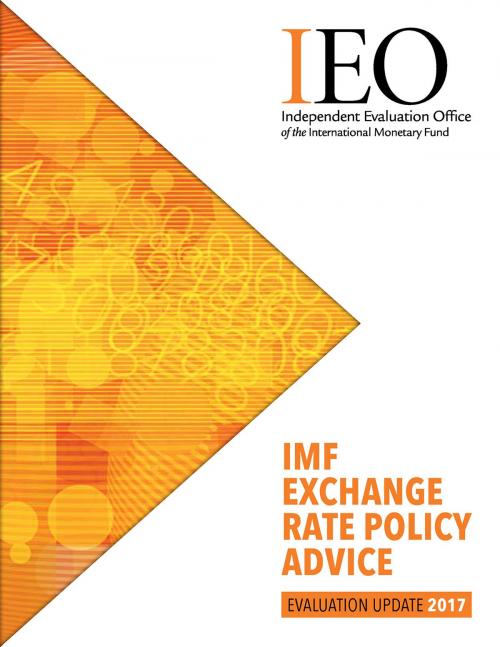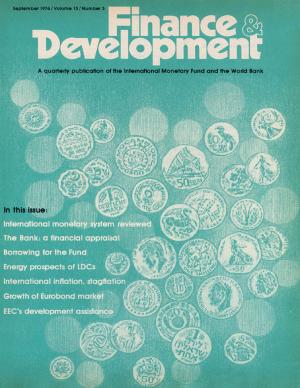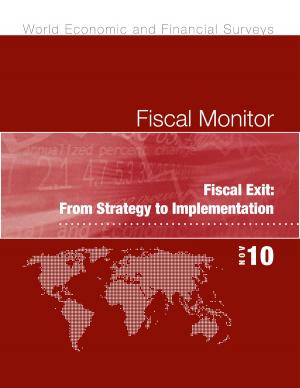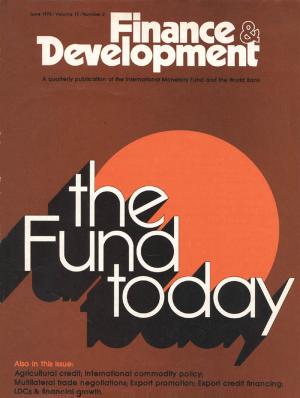IMF Exchange Rate Policy Advice
Revisiting the 2007 IEO Evaluation
Business & Finance, Economics, Money & Monetary Policy, Finance & Investing, Banks & Banking, Nonfiction, Social & Cultural Studies, Political Science, Politics, Economic Policy| Author: | Louellen Stedman, John Hicklin, Roxana Pedraglio | ISBN: | 9781484352458 |
| Publisher: | INTERNATIONAL MONETARY FUND | Publication: | December 27, 2017 |
| Imprint: | Language: | English |
| Author: | Louellen Stedman, John Hicklin, Roxana Pedraglio |
| ISBN: | 9781484352458 |
| Publisher: | INTERNATIONAL MONETARY FUND |
| Publication: | December 27, 2017 |
| Imprint: | |
| Language: | English |
This report is the seventh in a series of evaluation updates by the Independent Evaluation Office of the IMF (IEO) that return to past IEO evaluations and assess the continuing relevance of their main conclusions. The report revisits the 2007 evaluation of IMF Exchange Rate Policy Advice, which found that the IMF was “not as effective as it needed to be” in fulfilling its responsibilities for exchange rate surveillance in the period 1999–2005. While acknowledging the inherent complexity of providing exchange rate policy advice, including the lack of professional consensus on many of the key issues, the evaluation observed serious weaknesses in the IMF’s work on key analytical issues and in its engagement with members. The update finds that the IMF has substantially overhauled its approach to exchange rate policy advice since 2007. Key steps taken include: adoption of a more comprehensive approach to exchange rate surveillance under the 2012 Integrated Surveillance Decision; development of enhanced analytical tools; a new institutional view on capital flows; and introduction of the annual External Sector Report that provides an integrated picture of the external balances of major economies. The IMF continues to work on further enhancements of its approach. Nonetheless, the update concludes that challenges remain that impact the effectiveness of the IMF’s work in an area central to its mandate. The approach for assessing external balances and exchange rates continues to be contentious, in part reflecting differing views across the membership about the process of external adjustment. There are also ongoing questions in other areas, including considerations for exchange rate regime choice, attention to policy spillovers, the institutional view on capital flows, and data availability. The update suggests that the persistence of key issues identified in 2007 merits a full evaluation by the IEO.
This report is the seventh in a series of evaluation updates by the Independent Evaluation Office of the IMF (IEO) that return to past IEO evaluations and assess the continuing relevance of their main conclusions. The report revisits the 2007 evaluation of IMF Exchange Rate Policy Advice, which found that the IMF was “not as effective as it needed to be” in fulfilling its responsibilities for exchange rate surveillance in the period 1999–2005. While acknowledging the inherent complexity of providing exchange rate policy advice, including the lack of professional consensus on many of the key issues, the evaluation observed serious weaknesses in the IMF’s work on key analytical issues and in its engagement with members. The update finds that the IMF has substantially overhauled its approach to exchange rate policy advice since 2007. Key steps taken include: adoption of a more comprehensive approach to exchange rate surveillance under the 2012 Integrated Surveillance Decision; development of enhanced analytical tools; a new institutional view on capital flows; and introduction of the annual External Sector Report that provides an integrated picture of the external balances of major economies. The IMF continues to work on further enhancements of its approach. Nonetheless, the update concludes that challenges remain that impact the effectiveness of the IMF’s work in an area central to its mandate. The approach for assessing external balances and exchange rates continues to be contentious, in part reflecting differing views across the membership about the process of external adjustment. There are also ongoing questions in other areas, including considerations for exchange rate regime choice, attention to policy spillovers, the institutional view on capital flows, and data availability. The update suggests that the persistence of key issues identified in 2007 merits a full evaluation by the IEO.















